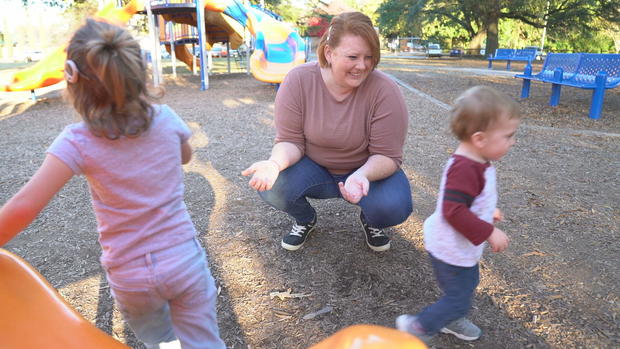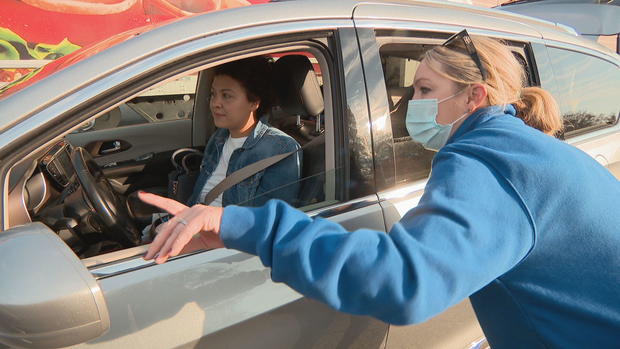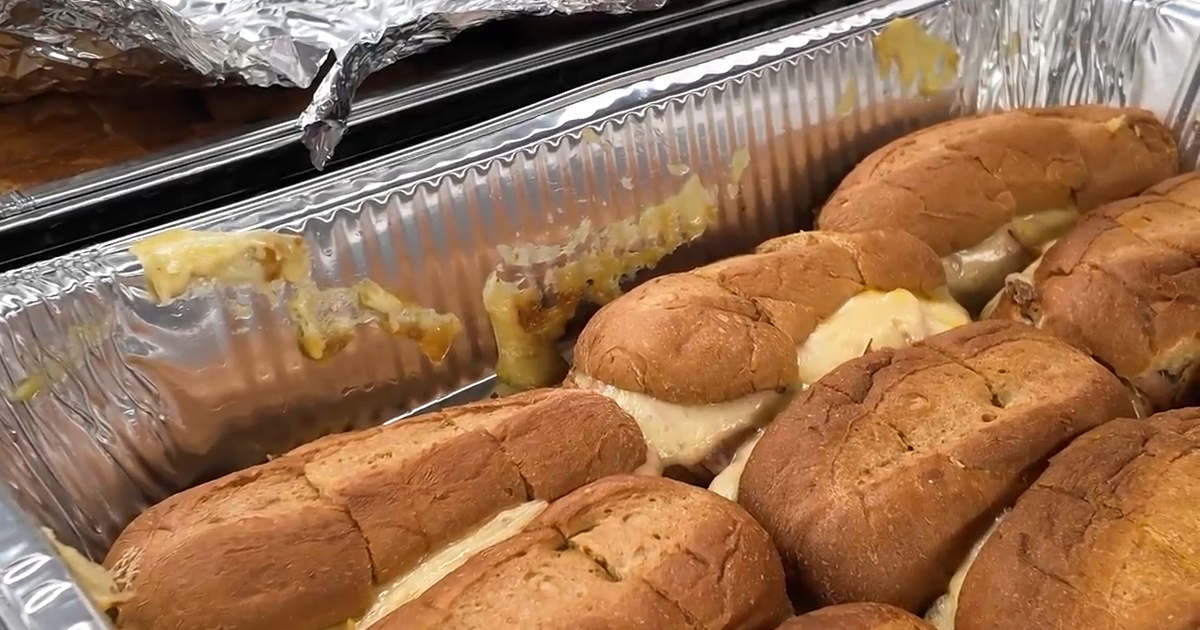The Pentagon vowed to help military families facing food insecurity. Some say the assistance isn't coming fast enough.
Navy wife Abigail Kennedy is relieved that her kids are too young to know why they're going to a food giveaway.
"We go to events like these so they help build our stock when times are rough," Kennedy said. "Our kids would eat Cheerios some days because that is all we had."
The military family has been living paycheck to paycheck for the last nine years. Her family is one of nearly 700 families who received food from the Military Family Advisory Network's giveaway. On the day Kennedy visited, the nonprofit gave each family 60 pounds of frozen chicken and produce.
"When we're seeing these cars go through and seeing kids in the back seat — yeah, we shouldn't have to host food distribution events like these," said Shannon Razsadin, the director of Military Family Advisory Network.
An estimated 160,000 military families experienced difficulty putting food on the table in 2020, according to Feeding America, a network of food banks and meal programs that provides meals to the hungry. Troops in junior enlisted ranks are especially vulnerable to food insecurity — almost 30% need help.
The issue has been exacerbated by a Department of Agriculture rule that restricts families from receiving Supplemental Nutrition Assistance Program benefits. Military Basic Housing Allowance — money used to pay rent — is factored in as income, preventing families in need from receiving government food benefits.
CBS News first spotlighted the U.S. military's food insecurity in February. Low wages, frequent moves, high unemployment among military spouses and a stigma seemingly born of denial contributed to the issue — but that's slowly changing.
For the first time, the Department of Defense commissioned a 90-day battle plan: Identify hungry military families and connect them with help.
"Our men and women in uniform and their families have enough to worry about," Defense Secretary Lloyd Austin said November 17. "Basic necessities like food and housing shouldn't be among them."
But Kennedy is skeptical. "I would be very, very surprised if we see anything within the next year," she said.
Kennedy credits the Navy-Marine Corps Relief Society for providing financial assistance through their quick assistance loans program in times of need.
"They are so kind," she said. "We've actually used that, I think twice, and it's been a lifesaver."
Most of the families helped by the Military Family Advisory Network's food giveaway will need help again. They can only live so long on resilience.
For those who would like more information on how to help military families, visit: www.combatmilitaryhunger.org.






